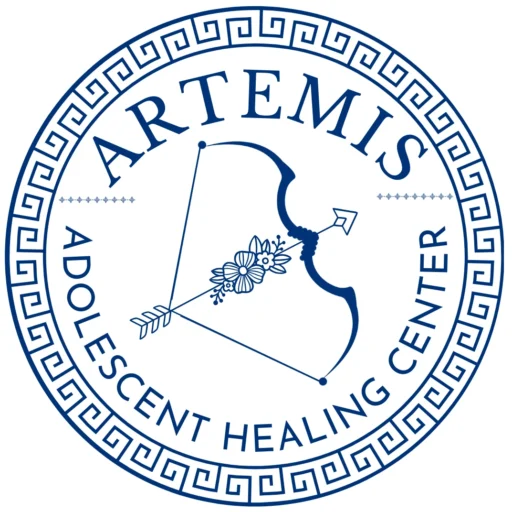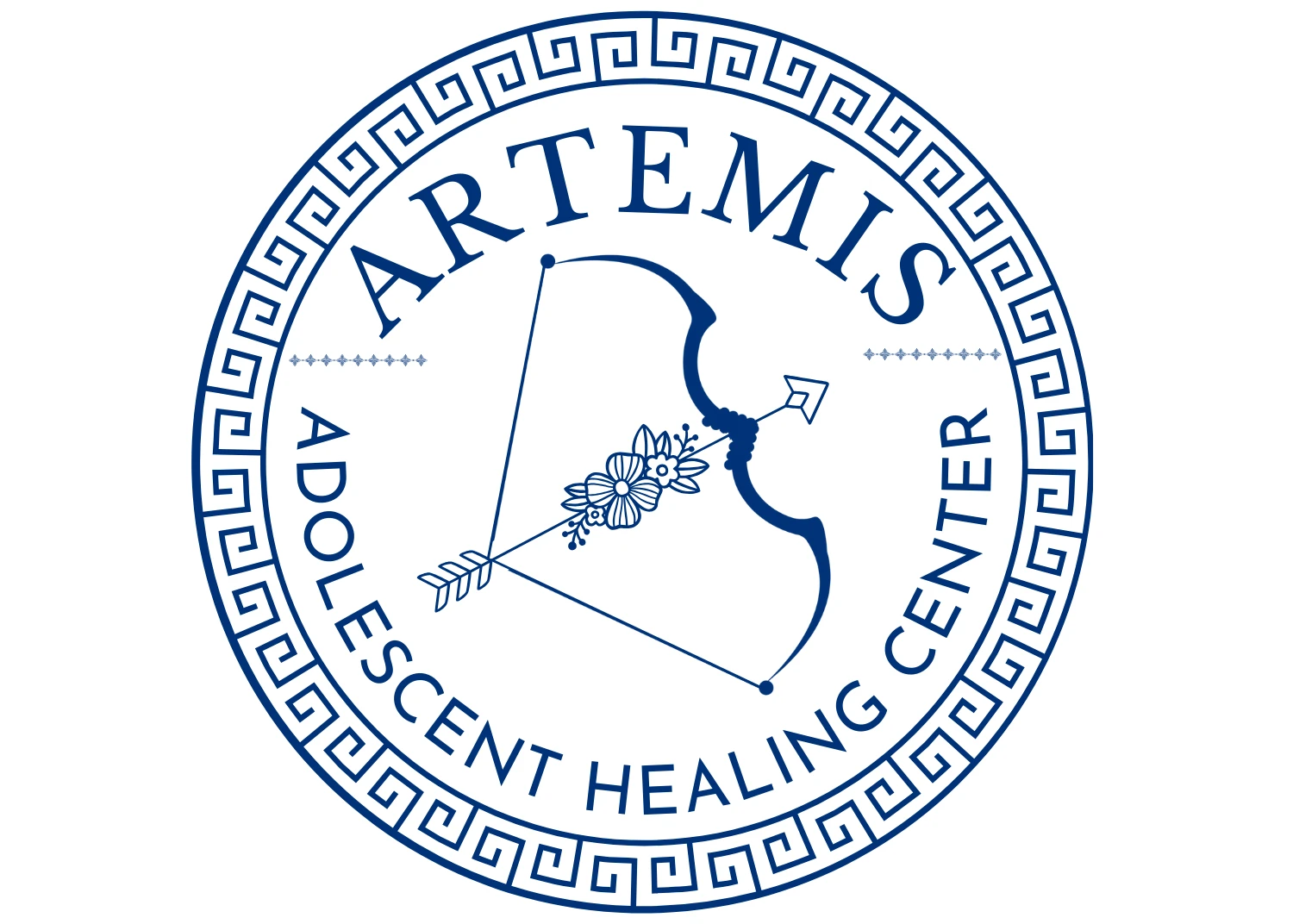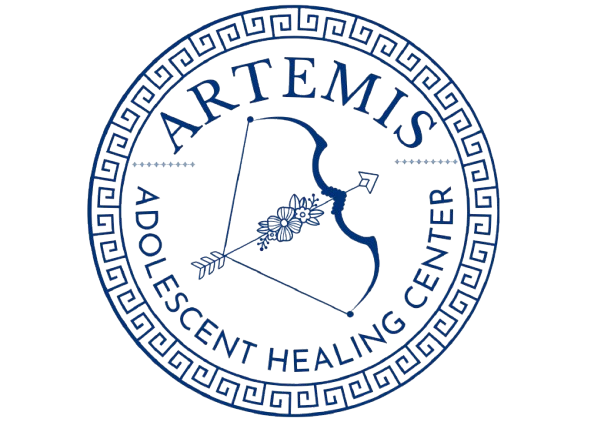Proven Support to Help Your Adolescent or Teenager Stop Drinking
When an adolescent has a drinking problem, the impact is not limited to themselves. Teen alcohol abuse forms a pressing concern that affects not just the young person but also their families and loved ones. For most, the teenage years are a time of drastic change.
At this stage in life, all young people navigate the trials and errors of academic achievement, lose and mend friendships, and struggle to find themselves in multiple ways.
When underage drinking and teen alcohol abuse plays a role, it adds another level of depth that further complicates already challenging health and emotional struggles. On top of these concerns, legal consequences can become a pressing matter if things spiral too far out of control.
If you have a child who shows signs of alcohol abuse at a young age, Artemis Adolescent Healing Center can help them achieve sobriety. With evidence-based approaches and support, we help parents work with their children to develop healthier habits that will serve them well in achieving lasting sobriety success.
Get Effective, Trusted Treatment Options at Artemis
What Starts Teen Alcohol Use?
Adolescent alcohol use, teenage drinking—there’s more than one way to describe an alcohol use disorder in teenagers. One thing is certain: it’s hardly a random act when kids drink. Typically, this behavior is fueled by peer pressure, curiosity, or other influences.
Many young people see older peers in school or family members drinking alcohol and begin copying their behaviors. Others turn to alcohol as a way to manage stress, social anxiety, or underlying mental health disorders like depression.
For many teenagers, engaging in these forms of risky behavior can seem like a natural part of growing up, even as a ‘rite of passage.’ Unfortunately, those who have an underlying vulnerability are at a much higher risk of developing alcohol addiction or issues with other types of drug use to numb their emotional pain.
The Scope of the Problem
Underage binge drinking is rarely associated with simple experimentation. According to surveys conducted by the National Institute on Alcohol Abuse, a large portion of young people admit to drinking alcohol in the past month—with many participating in binge drinking.
Binge drinking—or consuming large amounts of alcohol in a short period, is hazardous for anyone. Not only does it increase the immediate risks of underage drinking, like alcohol poisoning, drunk driving, and unprotected sex, it also lays the foundation for more long-term alcohol use disorders and possible mental health challenges.
Parents, You Have More Influence Than You Realize
By establishing conversations and staying connected in your child’s life, you assume a central role in reducing the odds of underage drinking for your child. In addition, building trust and showing genuine interest in the day-to-day challenges your teenagers face can help your overall relationship dynamic.
By taking yourself from an authority figure to more of a role of a concerned peer, teenagers are more likely to let their guard down. This can be a powerful tool in your drive to reduce underage drinking through peer pressure and other external forces.
The Risks of Underage Drinking and Teen Alcohol Abuse

Immediate Dangers to Underage Drinkers
The short-term alcohol effects on young people with alcohol abuse and alcoholism are unfortunately overlooked in many cases. Large amounts of alcohol consumed during short periods—known as binge drinking, are standard at parties and concerts.
It’s this exact type of behavior that often leads to risky decisions like unprotected sex with multiple partners, experimenting with drugs, or drinking and driving. These choices often lead to lifetime consequences, including accidents, injuries, or worse.
Impulse control can be one of the most disturbing side effects of binge drinking. When underage drinking takes place, and young people fail to control their impulses, they’re more likely to participate in dangerous, irresponsible behavior.
This can lead to young people becoming either victims or perpetrators of sexual violence. These traumatic incidents leave lasting emotional scars, making healthy emotional development more difficult later in life. Research shows that high school students who suffer sexual assault or another traumatic event not only lead to increased rates of drinking problems and substance abuse later in life but also challenges with trust and maintaining relationships because of the damage sustained.
Long-Term Consequences of Early Drinking
The risk factors don’t stop at an early age after they first start drinking. Unfortunately, alcohol has a long-term impact on brain development, particularly in the area of the frontal lobe. The frontal lobe dictates things like:
- Decision-making
- Problem-solving
- Cognitive Elements
- Concentration
Because this part of the brain is still developing in high school students, increased risk of drinking by people younger, without fully developed frontal lobes, is a significant factor in brain damage as an adult.
Some of the more physically-centered long-term consequences include:
Liver Damage
Liver damage is a common side effect of long-term alcohol use. Many older drinkers develop chronic liver disorders like cirrhosis, liver disease, and full-liver failure. Although, if caught in time, the liver can regenerate itself, it’s best to avoid any chance of these disorders by talking to your child about alcohol and the health risks that come with those who are likely to drink heavily.
Weight Gain
Overconsuming alcohol causes the body to retain fluid, leading to increased weight gain quickly. In addition, the starches contained in alcohol will also promote weight gain and are known high-risk causes of diabetes. Set a good example by establishing healthy ways to improve your quality of life by reducing drinking and substance use before it becomes too late.
Cardiovascular Issues
Heavy underage drinking and constant binge drinking, especially when combining alcohol use wiith a nicotine habit, can put you at a greater risk of developing cardiovascular issues. You could be vulnerable to hardening of the arteries, shortness of breath, and even heart attacks.
How Parents Can Help Their Teens

Parents can help their adolescents in multiple ways, making them less likely to drink as time goes on. Use the following list compiled by the experts at Artemis Adolescent Healing Center to become more proactive in avoiding binge drinking or any other form of alcohol use in your teenager:
Encourage Open Communication
One of the most powerful tools parents have is communication. Speaking candidly with teens about alcohol use and the risks of drinking combined with the challenges they may face is vital. We can’t overstate the importance of allowing these conversations to be non-judgemental, giving your child the time and attention to express their feelings and concerns without fear of punishment.
When teens feel like they receive support and understanding, they’re more likely to seek your advice when they encounter difficult situations. Let’s think about that one for a second. All your child wants is a voice—especially a teenager.
- They are likely no longer the family’s youngest, so they may not feel heard as often as they did at one point.
- There is often a natural disconnect between children and their parents, whether due to conflicting schedules, less time to talk, or the fact that teens don’t feel “heard” by their parents.
- Their friends don’t hear them; they usually gossip more than talk.
So, 90% of the time, children and teens just want uninterrupted opportunities to express their feelings. If you give them this courtesy, they’ll likely come to you for mentorship when they encounter difficult situations.
Use these discussions to teach them positive ways of dealing with stress, engaging in their favorite hobbies, or practicing mindfulness. These are all pages right from our playbook at Artemis Adolescent Center. Let’s discuss some of the ways we can help you get your teenager in for help if you suspect binge drinking or other types of alcohol use.
Get Accredited Treatment Programs at Artemis
Artemis Family-Based Intervention Methods
At Artemis Adolescent Center, we can help you well before you get your teenager through our doors.
Signs to Watch For
The first step you can take as a parent is to remain aware of any signs of binge drinking or alcohol use. If you notice any of the following that would typically be out of character for your teenager,
- Sudden Changes in Academic Behavior. If your teen typically performs well academically and suddenly shows signs of declining grades or a lack of interest, these could be signs of alcohol use.
- Withdrawal from Family and Friends. Was your teenager socially active at one point? Did they engage with family frequently and show up for events? If this suddenly stops for no apparent reason, alcohol could be the culprit.
- Messy Look/Poor Hygiene. If your teenager shows signs of not showering frequently, fails to brush/comb their hair or teeth, or repeatedly wears the same clothes for days, this could mean they’re drinking alcohol to battle depression.
Artemis Adolescent Health Center and Evidence-Based Strategies

Sometimes, the surprise intervention with the entire family present isn’t the best course of action, especially for a teenager who is drinking alcohol regularly. This could look like an attack on them, yielding the opposite result.
Instead, private, intimate chats with your teenager in a safe space are the best thing you can do to help. Tell them you know about a place that’s helped many other kids—just like them. Until things reach a certain level of severity, you should never make them feel like they’re being given an ultimatum.
After giving them some initial information regarding our facility, invite them for a visit to see what we have to offer. One of our professionals would be more than happy to speak with them about our programs.
Choosing a Care Level
Selecting a care level is the first step in the journey to recovery. Does your teenager have any pre-existing mental health conditions? Has their addiction led them to drop out of school? Is their use so severe that it causes withdrawal when they attempt to detox?
If you answered yes to any of these, our inpatient program is likely the best place to start. We recommend beginning medically assisted detox before inpatient therapy to ensure there are no additional medical challenges.
Detox Into Inpatient
During detox, which is not currently offered in-house at Artemis, your teen should be constantly monitored by medical professionals, receiving 24-hour attention to keep them comfortable and stable.
During this time, they receive different medications to assist in stomach discomfort, lack of sleep, depression, anxiety, and other challenges—but only during withdrawal.
After they feel physically well enough to enter inpatient treatment with us at Artemis, they’ll be received into their living quarters and receive a daily schedule of counseling sessions with peers and professionals. We also encourage family meetings, as your participation is vital as one of the primary pillars of support.
Outpatient Treatment

Outpatient treatment is generally reserved for less severe cases of teenage alcohol use. Maybe there’s no physical addiction involved yet, and your teenager has a strong support network at home that can help them through therapy. We have three types of outpatient treatment, including:
- Standard Outpatient. 2 to 3 days per week for about 2 hours per day
- Intensive Outpatient. 3 to 4 days per week for 2 to 3 hours per day
- Partial Hospiliazation Program. Our PHP program usually consists of 4 to 6 hours of attendance for 5 days each week.
Available forms of treatment depend on how we craft your personalized treatment plan, which consists of a roadmap we create based on your history of alcohol use, personal goals, and treatment goals. We use strategies like,
- Cognitive Behavioral Therapy
- Dialectic Behavior Therapy
- Mindfulness Treatment
- Dual-Diagnosis Treatment
- Trauma-Informed Therapy
Each of these forms of therapy is aimed at helping you and your teen work together to help them discover the root of their alcohol use and find more positive ways to deal with negative thoughts and feelings.
Up To 100% of Rehab Costs Covered By Insurance
Get the Help You Need Today to Defeat Teenage Drinking
As a teenager, you have your entire life ahead of you. Don’t let alcohol ruin it by robbing you of your health, independence, and peace of mind. Sometimes, it seems impossible, but at Artemis, we’re here to ensure you there is light at the end of the tunnel—people do recover. The roadblock in front of you is only temporary—let us help you get back on track. Contact a member of our admissions team today for more information.






